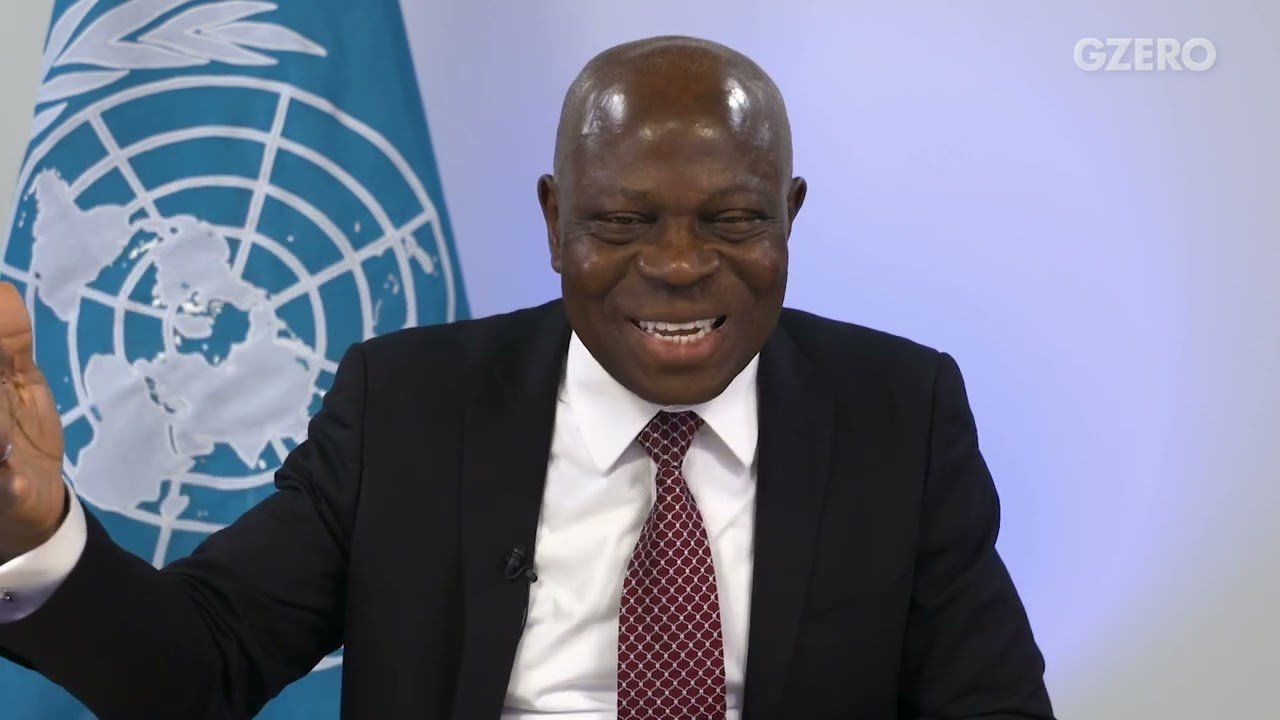April 09, 2023
Water is something none of us can live without, but billions of people take for granted. On GZERO World, UN-Water Chair Gilbert Houngbo and Ian Bremmer discuss the global water crisis, the impact of climate change, and solutions for providing future genereations with better access to clean, drinkable water.
Four billion people around the world experience at least a month of water scarcity each year, which is a problem Houngbo attributes to lack of resources, a rapidly changing climate, and bad government policy. To ensure that those most vulnerable to water stress don't get left behind, Houngbo emphasizes the need for investment in water-related infrastructure and technology, particularly in agriculture, which uses up to 75% of the world's fresh water supply.
"We as a global society have taken water for granted," Houngbo says, and water management must become "everyone's business." Houngbo also highlights the need to develop reliable metrics to measure progress in addressing water scarcity, especially in rural areas, which have some of the biggest problems.
Despite the severity of the problem, Houngbo remains optimistic that society can meet the global water challenge with policies that ensure access to basic water services, encourage water reuse, and minimize pollution risks.
Note: This interview appeared in a GZERO World episode, "The uncomfortable truth about water scarcity," on March 27, 2023.
From Your Site Articles
More For You
In this episode of Tools and Weapons, Microsoft Vice Chair and President Brad Smith sits down with Ed Policy, President and CEO of the Green Bay Packers, to discuss how purpose-driven leadership and innovation are shaping the future of one of the world’s most iconic sports franchises. Ed shares how technology and community-focused initiatives, from Titletown Tech to health and safety innovations on the field, are transforming not just the game of football, but the economy and culture of Green Bay itself. He explains how combining strategic vision with investment in local startups is keeping talent in the Midwest and creating opportunities that extend far beyond Lambeau Field.
Subscribe and find new episodes monthly, wherever you listen to podcasts.
Most Popular
Egyptians head to the polls to elect a new parliament during the first round of the Egyptian parliamentary elections in Giza, Egypt, on November 10, 2025.
Photo by Islam Safwat/NurPhoto
Egyptians are voting this month in parliamentary elections that aren’t expected to change who’s in charge, but could allow President Abdel Fattah el-Sisi to rule beyond 2030.
An injured soldier is transferred to a hospital following a clash between Thai and Cambodian troops over a disputed border area in Sisaket Province,Thailand, December 7, 2025.
Royal Thai Army/Handout via REUTERS
Thailand and Cambodia’s ceasefire is on the verge of collapse. Strikes were launched across their disputed border today, following clashes over the weekend that resulted in the death of a Thai soldier.
© 2025 GZERO Media. All Rights Reserved | A Eurasia Group media company.
